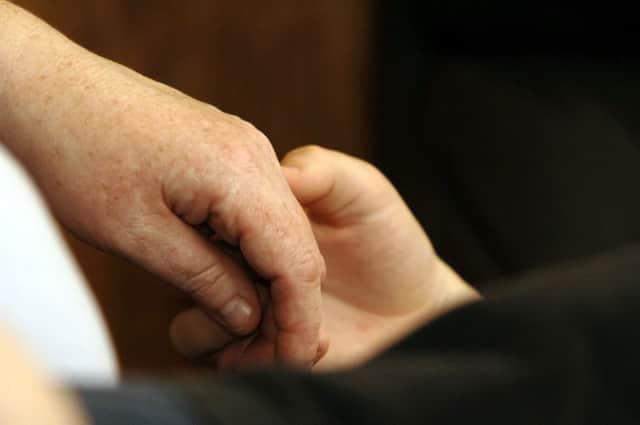On the upside of endeavouring to support people living with Down’s syndrome


There’s no such thing as a typical day as a Family Support Service Officer with Down’s Syndrome Scotland.
I’ve been doing this job for a little over a month now and each day has been very different and I’ve loved every minute of it.
Advertisement
Hide AdAdvertisement
Hide AdWe are a small charity which supports families who care for a child or an adult with Down’s syndrome, as well as adults who live independently, in all aspects of their daily lives. We also provide training and advice for education and health professionals.
I usually head into the office for 8.30am to try to miss the awful Edinburgh traffic to check my e-mails and messages. However, today I am heading straight from home to a review for Gemma, a girl with Down’s syndrome who has been attending mainstream school. The review was a really positive experience – all the professionals round the table including the teaching staff and the Speech and Language Therapist were working together to make sure Gemma is getting a brilliant experience at school. I leave with a little spring in my step.
I cover the South-east of Scotland which is a large area so I constantly rely on my satnav and although gradually finding my way around, I seem to have an innate ability to get lost.
I check my ever growing to-do list, which amongst other things can include writing reports, phoning other agencies to chase up referrals that have been made and returning calls. As the day progresses I seem to spend as much, if not more, time adding things to the list as checking things off!
I have my mobile on me at all times: families and carers of people with Down’s syndrome need to be able to speak to someone straight away if they have a problem or question about something. They can be at crisis point and need an unbiased, non-judgmental ear to talk things through with. Sometimes I can be the first person to say “It’s OK” and I pride myself in being on the families’ side, working with them to make things better. Families say they feel better when they have a plan on how to deal with things.
As we support families from when they receive a positive screening test result right through the life of a person with Down’s syndrome, the issues that people come to me with are as individual as each person with the condition. This means that I literally have to be ready for anything. I don’t pretend to know all the answers but I make it my mission to find out. I love the challenge of learning a new topic and I have excellent colleagues that have a broad range of experience whose brain’s I can pick. “Every day is as school day” as they say.
It’s important to me that I provide accurate and unbiased information, so I am always researching the most up-to-date publications. I am very aware that this is vital to parents and professionals as they are relying on us to give relevant, current and accurate information.
Next, I enjoy a cup of tea and a biscuit with John, a man with Down’s syndrome and his family. After 16 years of being on the housing list with the local authority, his parents contacted us last year. Our Family Support Service team supported them through the lengthy and daunting process of going for guardianship which means they now have power to speak on John’s behalf. John is expecting to hear about a new tenancy soon, and is looking forward to living independently with some support. This is great to see: while waiting for his new home John is currently living as independent a life as possible, with a support package that suits his needs and is very much part of his community.
Advertisement
Hide AdAdvertisement
Hide AdMy goal is that every man, woman and child with Down’s syndrome lives a positive, full and happy life. I believe that it’s everyone’s responsibility in the community to ensure this happens, from the bus driver who says Hello to John everyday on his way to work, to the parents whose child is in Gemma’s class, accepting that everyone has different strengths.
If our children grow up alongside children like Gemma in their class, taking part in their lessons and games then our next generation will be a more tolerant, inclusive one which is to everyone’s benefit.
• Morag Dalrymple is a Family Support Service Officer with Down’s Syndrome Scotland www.dsscotland.org.uk